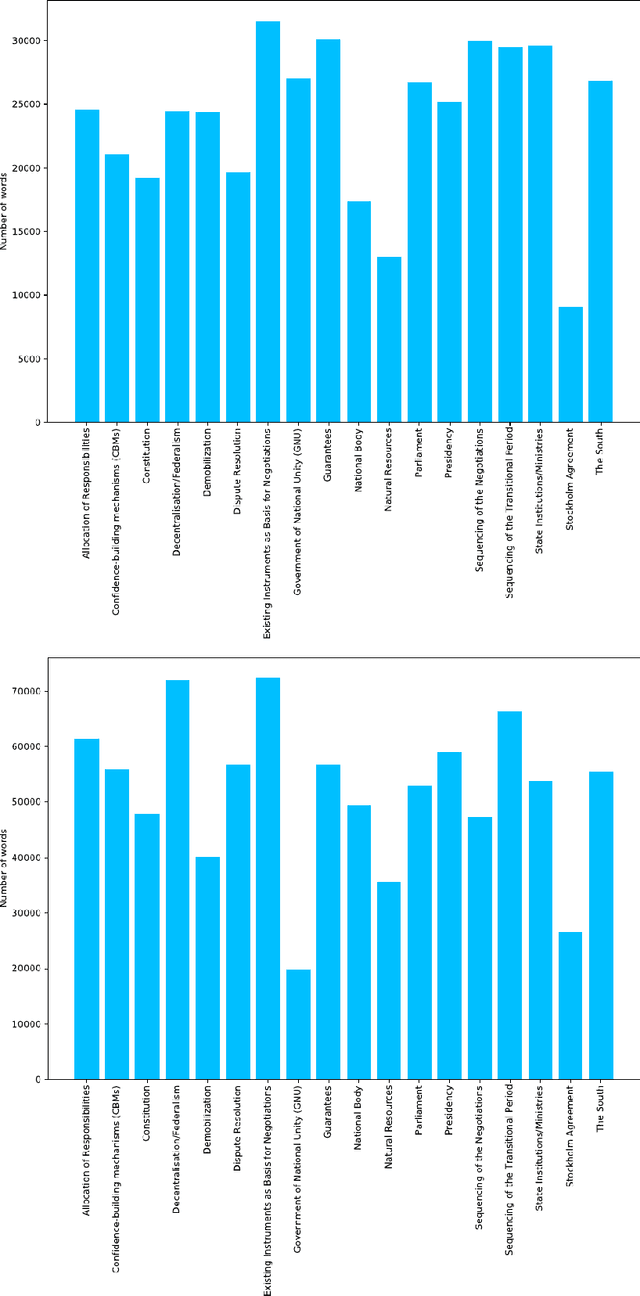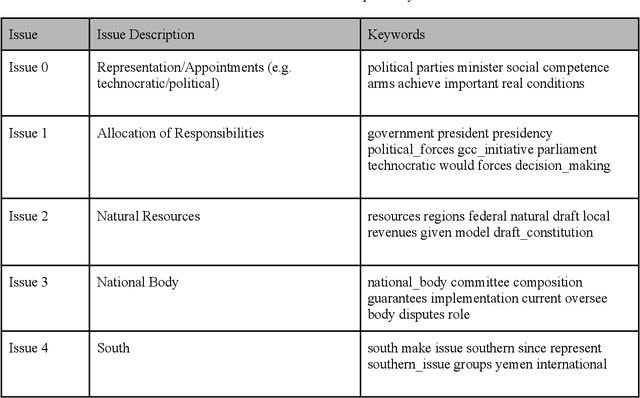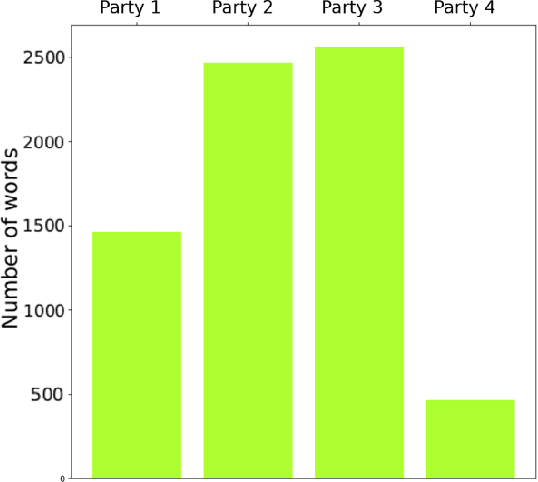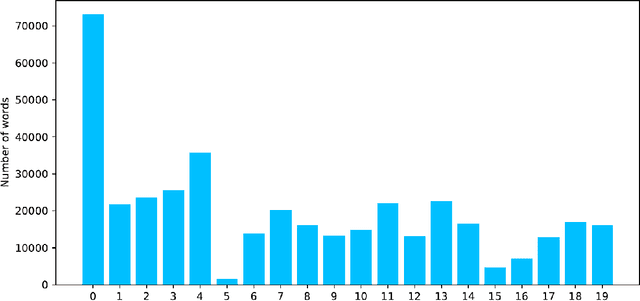Machine Learning for Mediation in Armed Conflicts
Paper and Code
Aug 26, 2021



Today's conflicts are becoming increasingly complex, fluid and fragmented, often involving a host of national and international actors with multiple and often divergent interests. This development poses significant challenges for conflict mediation, as mediators struggle to make sense of conflict dynamics, such as the range of conflict parties and the evolution of their political positions, the distinction between relevant and less relevant actors in peace making, or the identification of key conflict issues and their interdependence. International peace efforts appear increasingly ill-equipped to successfully address these challenges. While technology is being increasingly used in a range of conflict related fields, such as conflict predicting or information gathering, less attention has been given to how technology can contribute to conflict mediation. This case study is the first to apply state-of-the-art machine learning technologies to data from an ongoing mediation process. Using dialogue transcripts from peace negotiations in Yemen, this study shows how machine-learning tools can effectively support international mediators by managing knowledge and offering additional conflict analysis tools to assess complex information. Apart from illustrating the potential of machine learning tools in conflict mediation, the paper also emphasises the importance of interdisciplinary and participatory research design for the development of context-sensitive and targeted tools and to ensure meaningful and responsible implementation.
 Add to Chrome
Add to Chrome Add to Firefox
Add to Firefox Add to Edge
Add to Edge